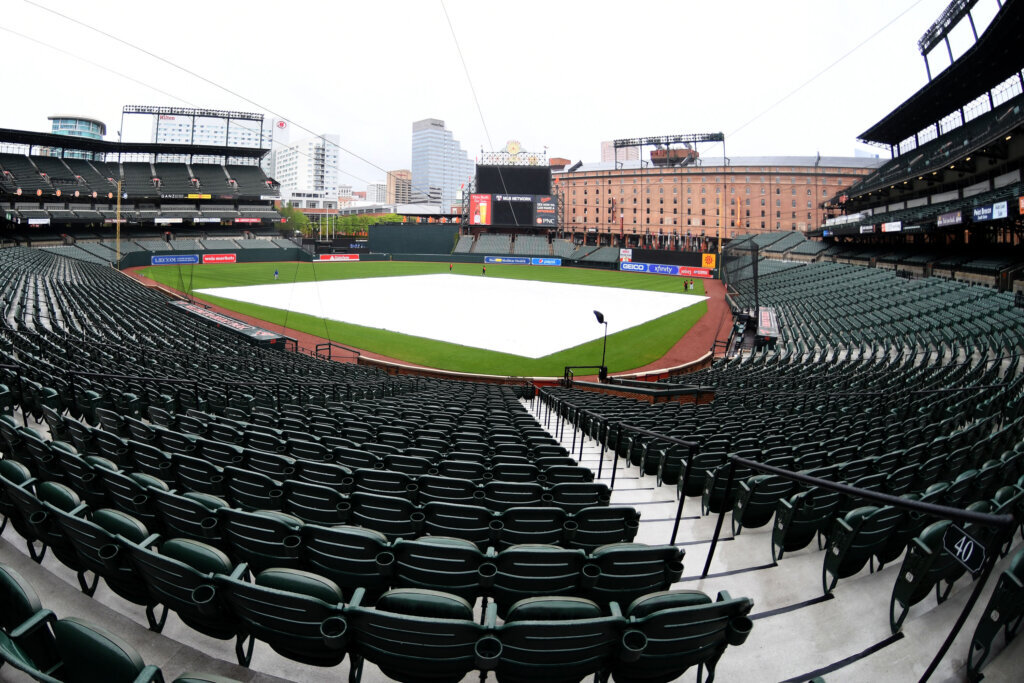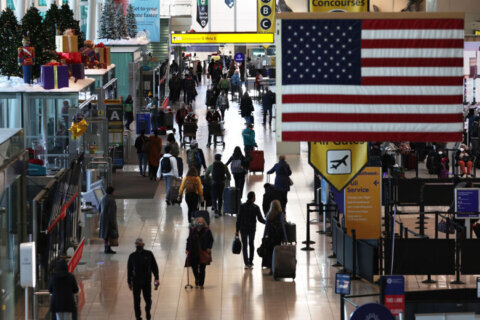
This content was republished with permission from WTOP’s news partners at Maryland Matters. Sign up for Maryland Matters’ free email subscription today.
State Treasurer Dereck E. Davis (D) suggested on Wednesday that the Maryland Stadium Authority made a mistake when it voluntarily agreed to forgo revenues from concerts held at Oriole Park.
Speaking at the start of a Board of Public Works meeting, Davis said Maryland taxpayers are better served when the quasi-governmental authority upholds its contractual agreement with the Baltimore Orioles.
Under that agreement, the team keeps 55% of the revenue generated from concerts and other non-baseball events at the ballpark, while the state gets 45%.
With legendary former Beatle Paul McCartney scheduled to play at Oriole Park on June 12, the team asked the authority to voluntarily forgo its share of the revenue from that event. Last week, the MSA board agreed.
After reading about the decision in the media, Davis, making his first extemporaneous remarks at a Board of Public Works session since taking office, said he concluded that the authority’s decision “didn’t really pass the smell test.”
The Orioles rent the ballpark from the stadium authority, which is responsible for the facility’s upkeep. When the legislature created the authority in the mid-1980s, lawmakers were told that it would help generate economic activity in Baltimore and produce revenue for the city and state.
In a statement, the authority said the Orioles claimed that the 55/45 revenue-sharing agreement that the two sides agreed to years ago no longer works for the team.
“The Orioles have informed MSA that our participating financially in these events is a significant disincentive for them to continue to bring non-baseball events to [Oriole Park at Camden Yards], such that they may schedule fewer or no events if we elect to participate,” the statement said.
MSA Chairman Thomas Kelso defended the decision, arguing that by giving up the revenues it was entitled to, the authority was protecting itself from the possibility that an event could lose money due to poor ticket sales or a rainout.
In addition, Kelso said, the authority is entitled to 80% of the 10% tax on each ticket.
“Eight percent of something is better than 45% of nothing,” he said.
Davis, the longtime chair of the House Economic Matters Committee who became treasurer in December, appeared to reject that argument.
He noted that when the MSA announced $600 million in renovations at nearby M&T Bank Stadium, home of the Baltimore Ravens, the Orioles invoked language from its lease agreement entitling them to equal treatment. The General Assembly this year authorized the $1.2 billion in repairs.
If the team can force the authority to follow the contract, the treasurer suggested, why can’t the MSA do the same?
“If this is a collaboration, a partnership, if they can exercise their contractual right, why can’t we do the same?,” he asked. “We had a contractual right, that both parties agreed to.”
Davis said the stadium authority has a “fiduciary responsibility” to taxpayers.
“They’re not a grant program for any of these entities,” he added. “Their role is — through partnership — that the state is supposed to benefit from this just as well.”
An Orioles spokesperson declined to comment.
According to the Baltimore Sun, MSA board members inquired before last week’s vote whether the decision to forgo concert revenue was permanent, but Kelso didn’t directly answer.
A Sun editorial called the decision “unseemly” and a PR “disaster.”
“[W]e don’t claim to be experts on rock concerts or stadium financing, but we can spot unseemly behavior from a great distance,” the paper wrote. “And we can see a public relations disaster in the making, given the Orioles current posture near the bottom of the American League East and the team’s attendance woes, the combination of which has already cost the Maryland Stadium Authority millions in reduced rent for the team.”
Davis appeared to suggest that the authority should rethink its decision.
“I think we can have a win-win for everybody,” he said. “It doesn’t have to be a one-sided agreement in order for it to turn out.”
Comptroller Peter V.R. Franchot (D), who serves with Davis, applauded his comments. Gov. Lawrence J. Hogan Jr. (R), the panel’s third member, said nothing. Kelso has served as Hogan’s campaign chair and the governor appoints MSA board members.
Davis was sheepish about offering criticisms of the deal at the opening of the Board of Public Works meeting. Hogan and Franchot have turned the BPW sessions into a showcase to share whatever political talking points or grievances they feel like airing.
Davis said twice, “I promised myself I wasn’t going to do this,” and got big laughs.
“I only made it four months,” he added.







